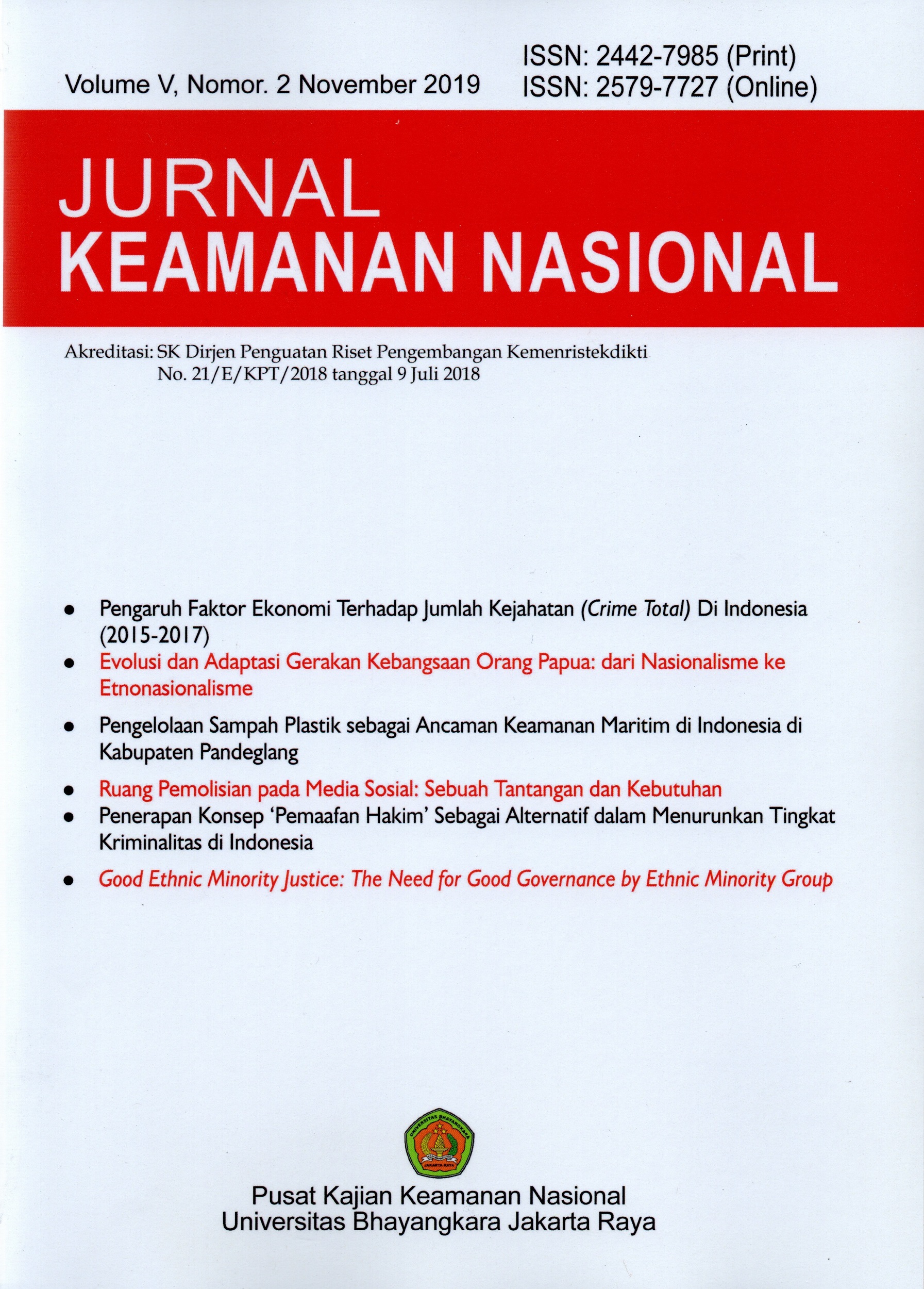Pengelolaan Sampah Plastik sebagai Ancaman Keamanan Maritim di Indonesia di Kabupaten Pandeglang
Keywords:
Maritime Security, Plastic Waste, Security threatsAbstract
This research purpose the issue of maritime security through. One of the maritime security issues in Indonesia is the issue of waste management at sea. As a country that wants to establish itself as the world’s maritime axis, it should make waste at sea an important issue and need serious attention. Research from Ocean Conservancy reports that around 8 million tons of plastic pass into the sea every year. If the condition cannot be controlled, by 2025 about 1 ton of plastic waste will be found in every 3 tons of fish taken from the sea. This research was conducted in Pandelela Region, Banten Province from May to December 2019. This study wanted to look at the marine waste management challenge in Pandeglang District and its completion strategy. With the case study method through a qualitative research paradigm with data collection techniques, field observations, interviews, and literature review, the results were obtained while that waste management in Pandeglang Region has not been a government priority. The government is still focusing on poverty, education and health issues. To 2020 and has been included in the regional strategic plan. Challenges obtained in waste management are problems of policy orientation, economic
problems, cultural issues, and resources. For this reason, hopefully, this study can be useful for many parties, including government, academia, students and the community.
Downloads

Downloads
Published
Issue
Section
License
Please read and understand the copyright terms for submissions to this journal.
Copyright Notice
The Jurnal Keamanan Nasional is under the Creative Commons Attribution 4.0 International (CC-BY 4.0) License, according to which:
1) Authors retain copyright and grant the journal the right to first publication, with the work simultaneously licensed under the Creative Commons Attribution (CC-BY 4.0) that allows the sharing of articles published with the acknowledgement of authorship and the initial publication in this journal.
2) The authors are authorized to make additional contracts separately for distribution of the version of the work published in this journal (for example, publication in an institutional repository or as a chapter of the book), as long as there is recognition of authorship and initial publication in this journal.
3) Authors are authorized and encouraged to publish and distribute their work online (for example, in institutional repositories or on their personal pages) at any time before or during the editorial process, as it increases the impact and reference of the published work.












